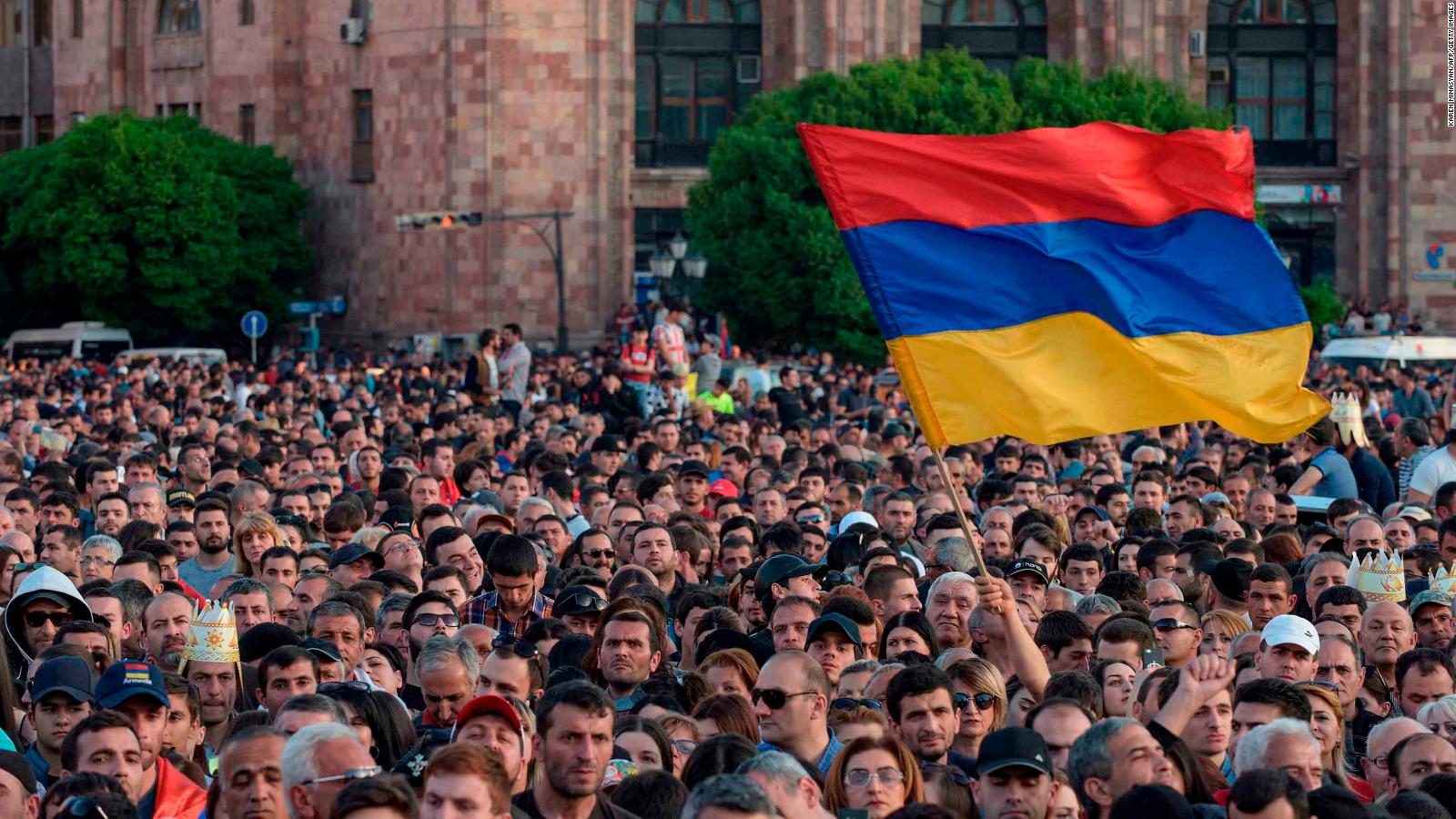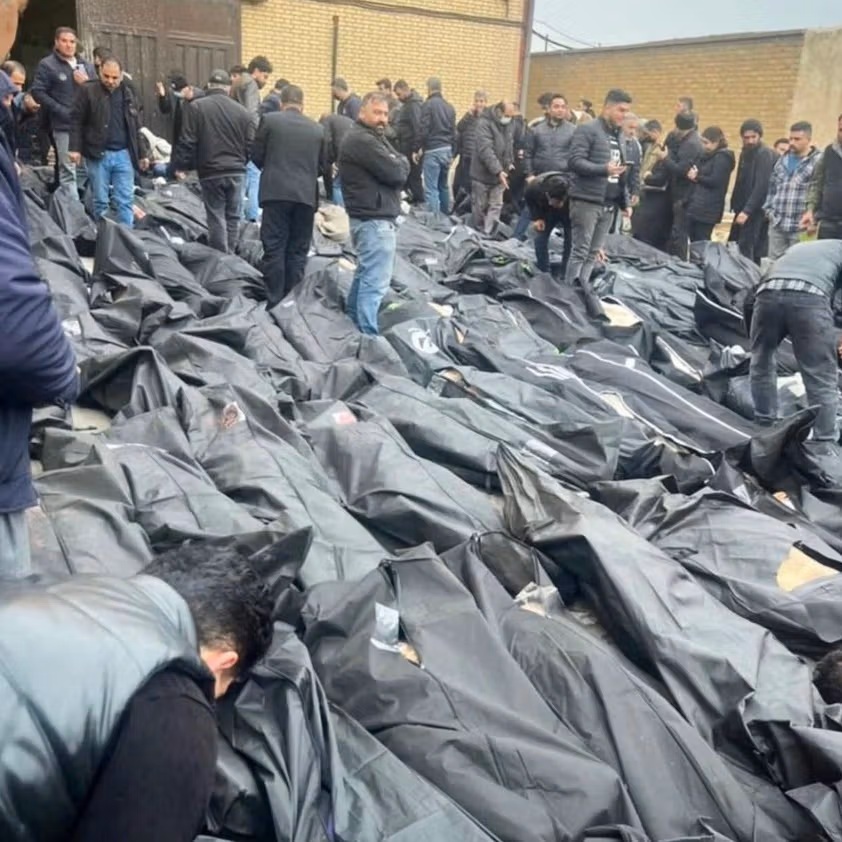
A month after Armenia lost the war in Nagorno-Karabakh, the country’s Prime Minister Nikol Pashinyan is facing mass protests and civil disobedience. The opposition demands his resignation and threatens to radicalize protests while Russia, Yerevan’s only ally, is putting pressure on both Armenia and its archenemy Azerbaijan.
By Nikola Mikovic
On December 9 Moscow announced a ban on imports of tomatoes and apples from Azerbaijan, allegedly to protect Russian consumers against harmful substances detected in several recent shipments. At the same time, Russia banned imports of tomatoes and peppers from Armenia’s Armavir Province, as well as from Antalya and Izmir in Turkey.
Moscow’s tomato ban came into force a day before Azerbaijan staged a large-scale military parade marking its victory over Armenia in a six-week war over the disputed Nagorno-Karabakh region. Given that Turkish troops, as well as President Recep Tayyip Erdogan took part in the ceremony, some Azerbaijani analysts argue that the embargo is “Russia's response to Azerbaijan's victory parade”.
However, it is worth remembering that a month ago, on the day Armenian Prime Minister Nikol Pashinyan and Azerbaijan’s President Ilham Aliyev signed a Russia-brokered truce, the Azeri forces shot down Russian Mi-24 military helicopter in Armenia. The Azeri authorities stated that it was an accident, pointing out that they were ready to pay the necessary compensation to the families of those who lost their lives. It remains uncertain if the compensation was ever paid, although the vegetable ban could be interpreted as a Russian “reminder” to Baku to fulfil promises it made to Moscow.
The two countries have strong business ties, primarily in the field of energy, which could be the reason why the Kremlin’s reaction to the downing of the Russian gunship was very weak. At the same time, Russia’s ban on imports of tomatoes and peppers from Armenia’s Armavir Province is a message the Kremlin is sending to its ally. Although the embargo is rather limited and localized to just one Armenian region, there are speculations that Moscow is pressuring Yerevan to sign a Union State treaty with Russia.
Since Armenia has been defeated and is heavily dependent on Russia, Pashinyan’s room for political maneuvers is very narrow and he will likely have to make significant concessions to Moscow, even if that means realization of the Nakhichevan corridor project.
Armenia is reportedly discussing the transit road to be built linking Azerbaijan’s Nakhichevan exclave with the rest of the country, a provision of the recently signed Karabakh truce. Most likely, the road will pass through the Armenian city of Meghri, located in the south of Armenia, almost 400 kilometers from Yerevan and next to Iran.
The very implementation of this deal would de facto limit Yerevan’s sovereignty over significant section of southern Armenia where the Russian security services would be escorting Azerbaijani military convoys from the mainland Azerbaijan to Nakhchivan. This is one of the reasons why many Armenians strongly oppose the truce agreement that Pashinyan signed with Aliyev. However, even if the opposition manages to eventually overthrow the 45 year old Prime Minister, it is very unlikely that the country will resume hostilities against Turkey-backed Azerbaijan.
The turbulent Caucasus region is now in Russia’s and Turkey’s sphere of influence, and the two countries are expected to keep making lucrative arrangements over the future of other hot spots, primarily Syria and Libya. It is worth remembering that in 2015, after a Turkish jet shot down a Russian Sukhoi SU-24 near the Syria-Turkey border, the Kremlin imposed a ban on Turkish tomatoes, and such action reportedly had significant consequences on Turkey’s economy. However, soon after the incident, the two countries turned into frenemies.
This year Russia has completed construction of the TurkStream pipeline, and is building a nuclear power plant in Mersin province, in southern Turkey. In spite of that, tensions between the two nations occasionally arise. For instance, Russia-backed Libyan National Army recently intercepted the Turkish ship Mabrouka, under a Jamaican flag, heading to the port of Misrata. Turkey, on the other hand, has openly ruled out buying the Russian coronavirus vaccine. Such actions, however, will unlikely have a significant effect on relations between Moscow and Ankara.
Since Armenia has been defeated and is heavily dependent on Russia, Pashinyan’s room for political maneuvers is very narrow and he will likely have to make significant concessions to Moscow, even if that means realization of the Nakhichevan corridor project.
Armenia is reportedly discussing the transit road to be built linking Azerbaijan’s Nakhichevan exclave with the rest of the country, a provision of the recently signed Karabakh truce. Most likely, the road will pass through the Armenian city of Meghri, located in the south of Armenia, almost 400 kilometers from Yerevan and next to Iran.
The very implementation of this deal would de facto limit Yerevan’s sovereignty over significant section of southern Armenia where the Russian security services would be escorting Azerbaijani military convoys from the mainland Azerbaijan to Nakhchivan. This is one of the reasons why many Armenians strongly oppose the truce agreement that Pashinyan signed with Aliyev. However, even if the opposition manages to eventually overthrow the 45 year old Prime Minister, it is very unlikely that the country will resume hostilities against Turkey-backed Azerbaijan.
The turbulent Caucasus region is now in Russia’s and Turkey’s sphere of influence, and the two countries are expected to keep making lucrative arrangements over the future of other hot spots, primarily Syria and Libya. It is worth remembering that in 2015, after a Turkish jet shot down a Russian Sukhoi SU-24 near the Syria-Turkey border, the Kremlin imposed a ban on Turkish tomatoes, and such action reportedly had significant consequences on Turkey’s economy. However, soon after the incident, the two countries turned into frenemies.
This year Russia has completed construction of the TurkStream pipeline, and is building a nuclear power plant in Mersin province, in southern Turkey. In spite of that, tensions between the two nations occasionally arise. For instance, Russia-backed Libyan National Army recently intercepted the Turkish ship Mabrouka, under a Jamaican flag, heading to the port of Misrata. Turkey, on the other hand, has openly ruled out buying the Russian coronavirus vaccine. Such actions, however, will unlikely have a significant effect on relations between Moscow and Ankara.
Russo-Turkish “partnership” will last at least until Turkey starts playing active role in the Donbass war, or until it provides direct support to Ukraine in the Black Sea in a potential Ukrainian attempt to return Crimea under Kiev’s sovereignty. Given that Russia did not provide assistance to its ally Armenia, it remains to be seen how it will react once the Donbass conflict escalates.
Nikola Mikovic is a Serbian journalist and a senior Geopolitical Analyst he publishes often for The Levant News.






